When embarking on the journey of novel writing, many authors default to using Microsoft Word due to its widespread familiarity. However, while it may seem like the most straightforward tool at first glance, Word often falls short when it comes to the nuanced needs of authors crafting long-form fiction. Below, we’ll explore why Microsoft Word can be an impediment to your writing process and recommend superior alternatives such as Scrivener, Atticus, and Novlr that are better tailored to novelists.
1. Not-So-Smart Autocorrection
One of the biggest drawbacks of using Microsoft Word is its autocorrection feature. While it can be helpful for catching typos, it often misinterprets context, resulting in intrusive or incorrect suggestions. For novelists who rely on creative language, slang, or character-specific dialogue quirks, this can become an annoying hindrance. The constant battle to override autocorrect’s insistence on standard language can disrupt the writing flow and stifle creativity.
Alternative Solution: Scrivener offers customizable spell-checking tools, allowing writers to set specific preferences or turn off features that may interfere with non-standard language. Similarly, Novlr’s intuitive spellcheck respects an author’s style, highlighting issues without unnecessary corrections.
2. Awkward Margin and Trimming Settings for Print
While Microsoft Word does offer some margin and layout controls, they can be cumbersome and lack precision. Setting up print-ready documents with exact margins and trims suitable for publishing requires significant manual adjustment, which can be frustrating for authors unfamiliar with technical formatting.
Alternative Solution: Atticus shines as a tool specifically designed for creating print and eBook-ready documents. It streamlines the formatting process with easy-to-use templates that meet industry standards, sparing authors the headache of manual page setup. Scrivener also provides built-in templates that simplify print layout and formatting tasks, giving writers a strong starting point.
3. Fragmented Document Management
For writers handling multiple drafts, notes, research, and outlines, Microsoft Word can become unwieldy. Managing dozens of separate Word documents leads to confusion and an increased risk of losing critical files. Word’s linear file management system is simply not built for the complex, interwoven structure of novel writing.
Alternative Solution: Scrivener stands out for its comprehensive project management capabilities. With Scrivener, authors can organize chapters, scenes, character sketches, and research within a single project. The “corkboard” view allows for easy visual plotting and rearrangement, giving writers a bird’s-eye view of their novel. Novlr also provides a seamless, web-based environment where everything related to your book is stored and accessible in one place, eliminating document chaos.
4. Lack of Goal-Setting and Progress Tracking
Motivation is essential for novelists, and progress tracking can play a significant role in maintaining momentum. Unfortunately, Microsoft Word does not include built-in features that help writers set daily word count goals or track their writing progress over time.
Alternative Solution: Both Novlr and Scrivener include word count tracking and customizable goal-setting features. Novlr, for instance, allows authors to set daily targets and provides insightful analytics to monitor progress. This feature helps keep writers accountable and motivated, something Microsoft Word simply cannot do without third-party tools.
5. Limited Focus Mode
Distraction-free writing is crucial for deep focus. While Word does have a basic “Focus Mode,” it lacks the immersive, full-screen options found in more specialized writing software. Word’s interface can feel cluttered, with an overabundance of buttons and toolbars that can draw attention away from the work at hand.
Alternative Solution: Scrivener offers a true “Composition Mode,” which is completely customizable for a focused, full-screen writing experience. Novlr’s minimalistic design keeps your writing space clean, reducing distractions while still offering easy access to essential tools. Atticus also provides a similar focused environment with fewer distractions, helping authors stay on track.
Final Thoughts: Choosing the Right Tool for the Job
While Microsoft Word has its place as a reliable word processor for many tasks, it falls short when it comes to the specific demands of novel writing. For those seeking to elevate their writing process, investing in tools like Scrivener, Atticus, or Novlr can make all the difference. Each of these alternatives offers features tailored to the needs of authors: from comprehensive project management and distraction-free writing modes to precise print formatting and progress tracking.
Your novel deserves software that works with you, not against you. Choose the tool that aligns with your writing style and workflow, and see how it transforms your creative process.
Bonus: Pricing*
Scrivener
- 30 day free trial available
Atticus
- one-time purchase and will include all future updates
Novlr
- Free version available, limited to 5 Projects
*Pricing correct as of date of publishing this article – 8 Nov 2024
